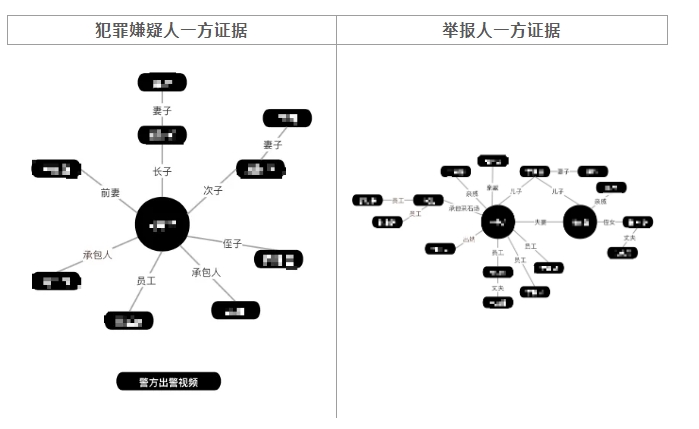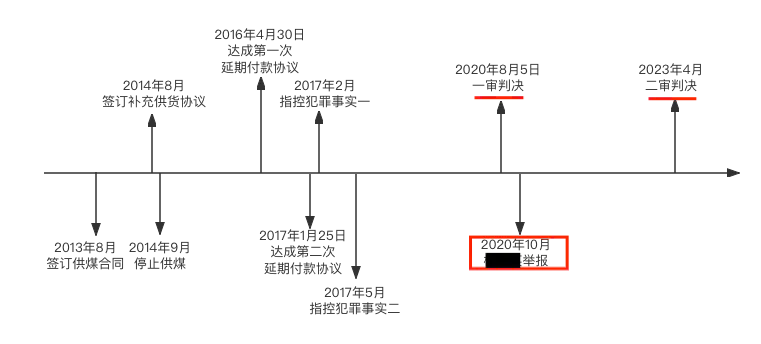Recently, King&Capital's lawyer Wang Xintong represented the case of Ma (a pseudonym) suspected of unlawful detention, in the stage of review and prosecution, after two times returned to the supplemental investigation, and finally obtained the decision of non-prosecution on suspicion. Wang lawyer through the case of professional in-depth analysis, and the undertaking of the prosecutor sincere communication, to obtain the understanding and trust of the prosecutor, and as a basis for the prosecution period in the review and elaborated on the relevant defense opinions to the procuratorial authorities, the procuratorial authorities in accordance with the law to make a decision not to prosecute, the case achieved a successful outcome, and gained the trust of the family and praise.
Judicial practice, due to the demand or collection of debt and suspected of illegal detention is more common, this article will share the defense experience of this case, and further comb the illegal detention of the crime of defense points for your reference.
First, door-to-door debt suspected of illegal detention
Ma mou for many times to the debtor to ask for raw materials owed to no avail, in February and May 2017 to lead his family and employees to drive to the debtor's company to ask for debt, and bring their own pots, buckets, firewood, rice and other living supplies, as well as a single bed, intends to collect the debt during the period of self-cooking, food and accommodation at their own expense. Ma and his family in the debtor's office to discuss the repayment program, Ma in the night alone support bed to sleep in the corridor outside Li's office door. After claiming the debt in vain, left on the following day.
After Ma Mou in the negotiation of repayment without actual fulfillment of the case, to the people's court sued the debtor for repayment. Debtor in the first instance after losing, in Ma and others door-to-door debt collection three years later, turned to the public security organs of the criminal report Ma and others unlawful detention, Ma and his family was criminal detention, and then was released on bail pending trial.
The indictment handed over by the public security organs to the procuratorate alleges that Ma Mou and others went to the cement factory of Ma Mou twice in 2017 to collect debts, and during the day, they called other people who went with them to collect debts to block the road, build stoves, cook, and spend the night in the cement factory (abbreviated description), and accordingly accused the suspects of unlawful detention.
The defense argues that the allegations in this case are unclear, the evidence is insufficient, and the corresponding consequences of the infringement of legal interests have not been achieved, the factual findings and the application of the law have not met the prosecution conditions, and a decision should be made not to prosecute.
Second, the core defense points
In this case, the defense that Ma does not constitute the crime of unlawful detention, the defense points are divided into through the overall evidence analysis can be seen in this case the alleged evidence does not meet the prosecution standard, the debtor exists in order to avoid the debt maliciously report the situation, the behavior involved in the case does not reach the degree of deprivation of liberty, detention time does not reach the standard of criminal prosecution and so on several aspects.
(i) Overall evidence analysis, insufficient evidence for conviction in this case
The evidence in this case is divided into the following categories: first, the verbal evidence of the suspect's interested party and the verbal evidence of the informant's interested party, each of which has its own version of the facts and cannot be used to convict the case; second, the circumstances issued by the police as well as the objective evidence proving the legitimacy of the claim are in favor of the suspect; and, third, the identification of the beds and the people is not a point of contention in the case. The overall picture of the evidence is shown below:
Evidence on the side of the suspect
Evidence on the side of the informant

Therefore, overall, the evidence in this case does not meet the standard of the charge.
(ii) The whistleblower is suspected of maliciously colluding to avoid the risk of losing a civil case by making a criminal report
As can be seen from the timeline, the informant of his report of illegal detention behavior, at that time did not report to the police, but as long as three years later, the first trial was lost, and only appealed while making a criminal report. There is a serious criminal report to avoid the subjective malice of civil liability, suspected of criminal means of meddling in civil activities. The chronological order of the relevant important events is summarized below:

(iii) This case does not reach the level of restricting the personal freedom of others
According to the provisions of Article 238 of the Criminal Law, the establishment of illegal detention needs to reach the degree of depriving others of personal freedom and up to a certain time limit. Both the Criminal Law and the Public Security Administration Punishment Law contain provisions on acts that infringe upon the right to personal freedom. Article 40 of the Public Security Administration Punishment Law uses the expression “unlawfully restricting another person's personal freedom”, while the Criminal Law stipulates that only acts that “unlawfully deprive another person of his or her personal freedom” constitute the crime of unlawful detention. “Restriction” and ‘deprivation’ is an act of different degrees of performance, the Indictment alleges that the blocking of roads, building stoves, cooking, overnight, etc. does not have the illegal nature of the behavior itself, not to mention the possibility of restriction or deprivation of personal freedom. Even based on the unilateral statement of the informant Yang Moumou and other interested parties, Ma Moumou and others, while restricting Yang Moumou from leaving the office, did not prohibit him from communicating with others or leaving the office to go to the restroom, and there were also other employees going in and out of the office, which was far from reaching the degree of deprivation of personal liberty.
(d) The so-called “restriction of liberty” in this case did not reach the 24-hour limit.
According to the Opinions on Several Issues Concerning the Handling of Criminal Cases Involving “Soft Violence”, “Anyone who unlawfully detains another person for more than three times, each time for more than four hours, or for a cumulative period of more than twelve hours, shall be convicted and punished for the crime of unlawful detention. “. However, the suspect's behavior in this case did not fall into the category of “soft violence”. Both the suspect and the victim recognized each other's legitimate debt relationship, i.e., the suspect's request for legitimate benefits did not meet the requirements of “soft violence” for the purpose of obtaining unlawful benefits or forming unlawful influence, so this case should not use the prosecution standard of the above opinion, but should refer to the general unlawful detention crime of deprivation of personal freedom. Twenty-four hours of filing standards, but the evidence in this case could not prove that Ma and others deprived others of their personal freedom, let alone restricting their personal freedom for twenty-four hours. Therefore, the alleged behavior in this case does not constitute unlawful detention, much less the crime of unlawful detention.
In this case, Ma and his family and the company employees on behalf of the company to discuss how to repay the money owed, the alleged behavior lack of solid, sufficient evidence to support, and did not meet the standard of illegal detention charges, Ma and others do not constitute the crime of illegal detention. In the end, the prosecuting authorities recognized the views of the defense, after careful consideration, many times back to the investigation, found that the facts of this case is doubtful, made a decision not to prosecute.
Third, the main points of the defense of the case
Reflected in this case is the debt collection illegal detention cases of legal arguments. Below we will analyze the defense points of the crime from a broader perspective of illegal detention. Illegal detention is a serious deprivation of citizens' physical freedom, its behavior is summarized into two categories: one is the direct constraint of the human body, depriving it of the freedom of physical activity, such as binding; the other is the indirect constraint of the human body, depriving it of the freedom of physical activity, i.e., the other person is imprisoned in a certain place, so that he or she can not or obviously difficult to leave, escape. Unlawful detention constitutes a crime only when it reaches a fairly serious level. Therefore, the nature of illegal detention shall be determined by a comprehensive analysis based on such factors as the severity of the circumstances, the magnitude of the harm, and the length of the detention.
(i) Whether the act in question reaches the degree of deprivation of liberty
The establishment of the crime of unlawful detention requires the degree of “deprivation” of another person's personal freedom, rather than mere “restriction”. Both the Criminal Law and the Public Security Administration Punishment Law contain prohibitions against acts that infringe on personal freedom. The difference lies in the fact that article 40 of the Public Security Administration Punishment Law uses the expression “unlawfully restricting another person's personal freedom”, whereas the Criminal Law stipulates that the crime of unlawful detention is constituted by the “unlawful deprivation of another person's personal freedom”, which shows that the words “deprivation” and “unlawful deprivation of personal freedom” are not the same as the words “unlawful deprivation”. It is thus clear that “deprivation” and “restriction” are manifestations of different degrees of an act, and the nature of the corresponding acts should also be different.
Therefore, if the behavior of the person concerned does not reach the degree of deprivation of personal freedom, such as freedom of communication has not been completely deprived of, or can still freely enter and exit the relevant places, normal contact with friends and relatives, even if the restriction of personal freedom for a longer period of time, should not be dealt with in accordance with the crime.
(ii) Whether the time of detention reaches the standard of criminal prosecution
According to Article 238 of the Criminal Law and the relevant judicial interpretations, the establishment of the crime of illegal detention not only requires the deprivation of personal freedom, but also need to meet certain time requirements. With regard to the criminal prosecution standard for the crime of unlawful detention in terms of time, there are two types of cases in judicial practice. One is the clear criteria for filing a case set out in the Opinions on Several Issues Concerning the Handling of Criminal Cases Involving “Soft Violence” issued by the two ministries and two high courts. The opinion pointed out that “unlawful detention of others more than three times, each time the duration of more than 4 hours, or unlawful detention of others in the cumulative time of more than 12 hours, shall be convicted and punished for the crime of unlawful detention” [1], but the application of the premise of this opinion is that the behavior of the perpetrator must comply with the “soft violence” standard, that is, its behavior must meet the “soft violence” standard, that is, its behavior must meet the “soft violence” standard. The premise of the application of this opinion is that the behavior of the perpetrator must meet the standard of “soft violence”, i.e., the purpose of the illegal act is to seek unlawful benefits or to form an unlawful influence. Secondly, reference is made to the provisions of the Provisions of the Supreme People's Procuratorate on the Criteria for Filing Criminal Cases of Dereliction of Duty and Abuse of Power [2] for state officials, i.e., “unlawful detention carried out by an employee of a state organ utilizing his or her authority to unlawfully deprive another person of his or her personal liberty for more than 24 hours shall be filed”.
(iii) Whether there is violence, beatings, insults and other bad behavior
Whether there is violence in detention will also affect the characterization of the case. According to the Provisions of the Supreme People's Procuratorate on the Filing Standards for Cases of Dereliction of Duty and Abuse of Power, even if the perpetrator's detention time does not reach the 24 hours required by the filing standards, if there are beatings, insults, or other egregious acts of detention, the case shall be filed.
(iv) Whether there is subjective intent to restrict personal freedom
Illegal detention is an intentional crime, if the suspect did not intentionally unlawfully restrict another person's personal freedom, or the unlawful detention actually has nothing to do with him/her, it shall be determined that he/she does not have the subjective intention of unlawful detention, and shall not be punished for the crime.
(E) The connection and difference between the crime of unlawful detention and the crimes of kidnapping and extortion and blackmail
In practice, since the crimes of solicitation-type detention, kidnapping and extortion all have a certain degree of overlap of the constituent elements in the deprivation of personal liberty, it is necessary to make a positive determination of the behavior in order to achieve an effective misdemeanor defense. All three offenses involve the objective act of soliciting property by restricting another's personal liberty, but in contrast to the personal liberty interests infringed upon by unlawful detention, kidnapping and extortion also infringe upon a citizen's right to property, i.e., the “unlawful purpose” of possessing the property. Debt is an important reason to exclude the “purpose of unlawful appropriation”, and after the “purpose of unlawful appropriation” is excluded, the unlawful part of property disappears in debt collection detention, leaving only the unlawful part of the crime of personal crime, and therefore the restriction or deprivation of personal liberty for the purpose of debt collection does not constitute the crimes of kidnapping and extortion. Therefore, the restriction or deprivation of personal freedom for the purpose of debt collection does not constitute the crimes of kidnapping and extortion.
(vi) Attention to mitigating circumstances
Guidelines on Sentencing for Common Crimes [3] provides that “if the crime of illegal detention is constituted, the cause, time, harmful consequences and other facts of the crime of illegal detention should be taken into account, the sentencing circumstances, as well as the defendant's subjective malice, physical danger, confession and repentance, and other factors, to determine the application of probation”, so the defense in the sentencing Defense should pay attention to the degree of participation in the facts from the parties involved in the case, the subjective malignancy, personal danger and other aspects of the comments, for the parties to fight for the surrender, accessory, merit, victim understanding, guilty plea and other mitigating and mitigating circumstances of sentencing.
With the gradual development of the market economy, there has been a gradual increase in the number of crimes of unlawful detention for the purpose of soliciting debts, and when dealing with such cases, if not properly understood and operated, it is very likely to lead to huge deviations in conviction and abnormally light and heavy sentences, resulting in an imbalance in the application of the criminal law. It is only by accurately determining the nature of the crime committed by the defendant in the light of the specific facts of the case, and by ensuring the fairness and reasonableness of the punishment he receives, that the penal law can be effectively brought into play to serve its punitive and educational functions, and that it can be guaranteed to be independent in the context of a society in transition and a society at risk, In the “transition society” and “risk society”, the independence, authority, modesty and self-consistency of the criminal law can be guaranteed, and the good effect of the function of the criminal law can be truly realized.
Commentary:
[1] Opinions of the Supreme People's Court, the Supreme People's Procuratorate, the Ministry of Public Security, and the Ministry of Justice on Several Issues Concerning the Handling of Criminal Cases Involving Soft Violence
[2] Provisions of the Supreme People's Procuratorate on the Criteria for Filing Criminal Cases of Dereliction of Duty and Abuse of Power (Gao Zi Fa Shi Zi [2006] No. 2)
[3] Circular of the Supreme People's Court and the Supreme People's Procuratorate on the Issuance of Guidelines on Sentencing for Common Crimes (for Trial Implementation) (Fa Fa [2021] No. 21)




